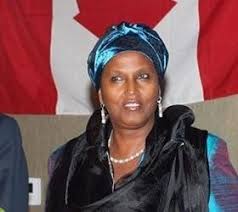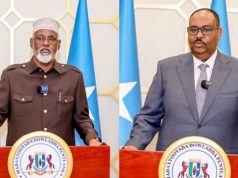
In Somalia it is better for the Premier to be a woman
The coronavirus pandemic that has swept the world since the beginning of 2020 has put all states to the test. Some reacted with positive results, limiting deaths and infections, others less so.
Among the countries that have best combated the infection, Iceland, Finland, Norway, Denmark, Taiwan, New Zealand and Germany stood out. These seven countries have one thing in common: they are all ruled by women. In Iceland, Ms Katrín Jakobsdóttir governs; in Finland Ms Sanna Marin; in Norway, Ms Erna Solberg; in Denmark Ms Mette Frederiksen; Taiwan is chaired by Ms. Tsai Ing-wen; New Zealand by Mrs. Jacinda Ardern and Germany by stainless Angela Merkel.
This resilience to the pandemic does not seem like a simple coincidence considering that women leaders in the world are just 7% of the total.
Although it is true – as Antonio Polito recalled in an article published in Corriere della Sera on 15 April 2020 – that it is not enough to have a woman in charge to do better because, for example, Belgium, governed by Ms Sophie Wilmes, is been among the hardest hit by the pandemic, it is equally true that the confrontation with the “machi” statesmen is absolutely depressing.
Donald Trump’s United States, Vladimir Putin’s Russia, Xi Jinping’s China, Bolzonaro’s Brazil, Narendra Modi’s India, Erdogan’s Turkey are certainly among the countries most affected by Covid 19, so much so that they appear plausible. an equation between virus and rate of democracy.
It is not very clear why women in government have shown themselves better in the pandemic battle than the “alpha” males of world politics. Undoubtedly, the health facilities already present in their states have contributed, but the speed of the closures and the setting up of the garrisons for the protection of the population was certainly the result of timeliness, intuition and prudence, all declined to women.
It can therefore be concluded that, when the situation becomes “really complex”, it is statistically better to rely on women.
Somalia has also been in a “truly complex” situation for decades and it is therefore not clear why, once the former Prime Minister Hassan Ali Khayre was dismissed from Parliament on 25 July 2020 and the former Director General of the Presidency of the Federal Republic ousted Nur Dirie Hersi, known as “Fuursade”, self-nominated unrealistic to his succession, we should not now think about appointing a woman.
Indeed Somalia, despite the overcoming of the transition phase, has remained for years in a limbo between security and civil war, destruction and reconstruction, clan electoral law and universal suffrage, development and backwardness, public works and drought. In short, in constant balance between war and peace.
It is never possible that an army trained for years by the best experts in the world (and Italy knows something about it!), Supported by thousands of international troops and supported by the incursions of American super-technological drones will not be at the head of about six thousand Al Shababs that infest a well-known and perfectly demarcated area of the country? It is never possible for a road to be asphalted in Mogadishu without providing for lighting or, in its subsoil, a sewer suitable for the discharge of rainwater so that, in the rainy season, it becomes a torrent that carries with it the few riches that the people manage. to scrape together with many sacrifices? Is it possible that the Halane complex, which houses the structures of the United Nations, the EU and the African Union in Mogadishu, as well as the embassies of countries including the United States and the United Kingdom, will be reduced to an open landfill, without any facility for waste collection?
These are not new problems, suddenly appearing like the coronavirus. Yet, men have not so far managed to deal with these very serious problems even though they have been selected up to now always in different fields and often with noble formations. Therefore, it does not seem a problem of authority or of clans more or less well-versed in governing the common destiny of Somalia. More simply, it could be a gender problem.
here is no shortage of female personalities suitable for the office of PM in Somalia.
Among the many particularly committed figures, the name of Asha Hagi Elmi stands out who has mobilized women for the cause of peace through clans and political divisions and continues to play a vital role in mediation within the ongoing peace process in Somalia. .
Also of note is Yussur A.F. Abrar. During her career she was Vice President at Citigroup, as well as Vice President of Credit Risk Management at the American International Group in New York City. Abrar is also the founder and president of Warsun International Communications Corp. From September to November 2013, she was governor of the Central Bank of Somalia.
Also worth mentioning are Halima Ibrahim Isamil, known as “Yarei” (small), President of the Electoral Commission of the Federal Republic of Somalia and the current Minister of Health, also with Italian citizenship, Fawziya Abikar.
To limit ourselves here to just four shining examples of Somali commitment to women.
Reported by shukri said





